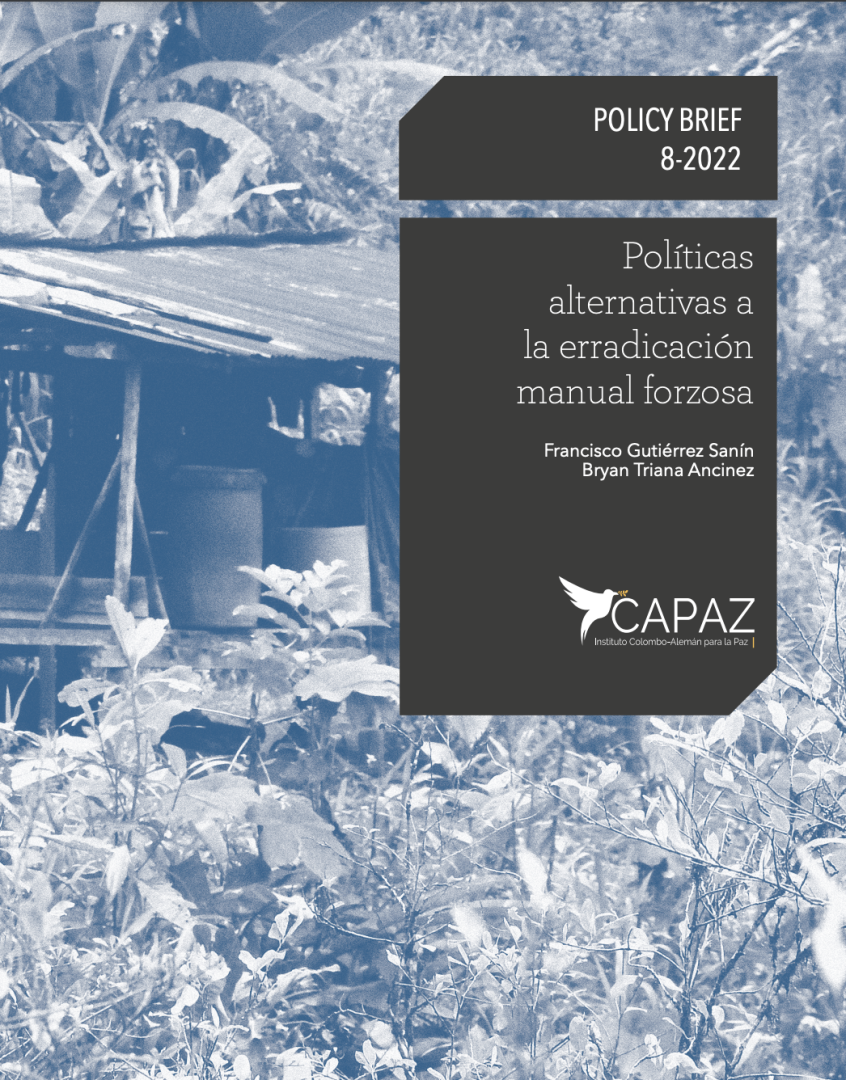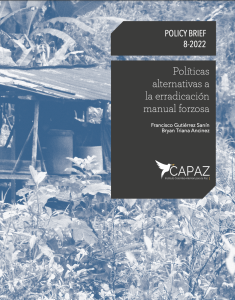
Alternatives to forced manual eradication in the latest CAPAZ Policy Brief
 The latest CAPAZ policy brief is entitled “Policy alternatives to forced manual eradication”. In this text, the authors analyse the results of forced manual eradication and put forward recommendations to reduce its negative social impacts and reduce illicit crops through alternative policies.
The latest CAPAZ policy brief is entitled “Policy alternatives to forced manual eradication”. In this text, the authors analyse the results of forced manual eradication and put forward recommendations to reduce its negative social impacts and reduce illicit crops through alternative policies.
The authors
Francisco Gutiérrez Sanín
Holds a degree in anthropology from Universidad de los Andes, a master’s degree in the analysis of contemporary problems from Universidad Externado de Colombia, and a doctorate in political science from the University of Warsaw. He is a professor at the Institute of Political Studies and International Relations (IEPRI) at Universidad Nacional de Colombia, as well as Director of the Observatorio de Tierras (Land Observatory). Fagutierrezs@unal.edu.co
Bryan Triana Ancinez
Graduated in law from Universidad del Rosario and currently a master’s student in state law with an emphasis on public law at Universidad Externado de Colombia. He currently serves as a researcher at the Observatorio de Tierras (Land Observatory). Bryan.triana@urosario.edu.co
Abstract
This policy brief analyses the results of forced manual eradication and puts forward recommendations for reducing its negative social impacts and diminishing the cultivation of illicit crops through alternative policies. To this end, it provides context on the problems of this means of eradication, its ineffectiveness, and its impact on the rights of highly vulnerable communities. Recognising the state’s obligation to combat illicit crops and the risks of failing to control their proliferation, it argues that the best solution is to put an end to forced eradication. To this end, four alternative policy options are proposed that would lessen the impacts of any crop reduction strategy, while at the same time proving more effective: re-launching PNIS, promoting regional eradication campaigns, fulfilling outstanding agreements, and building a better interface between the state and the peasantry.



